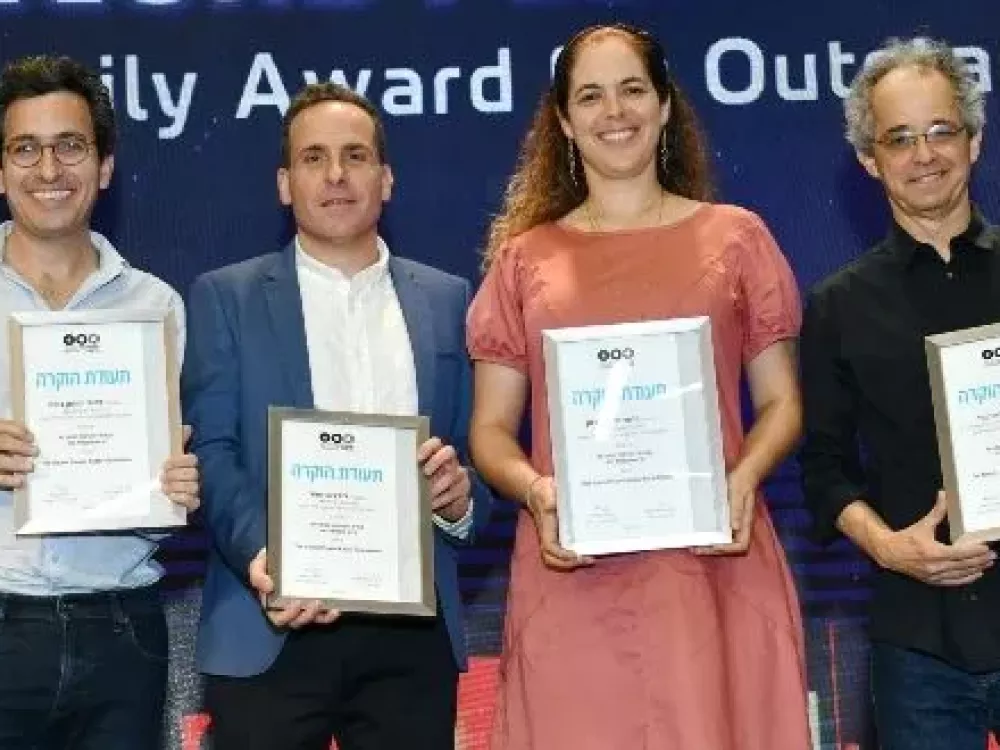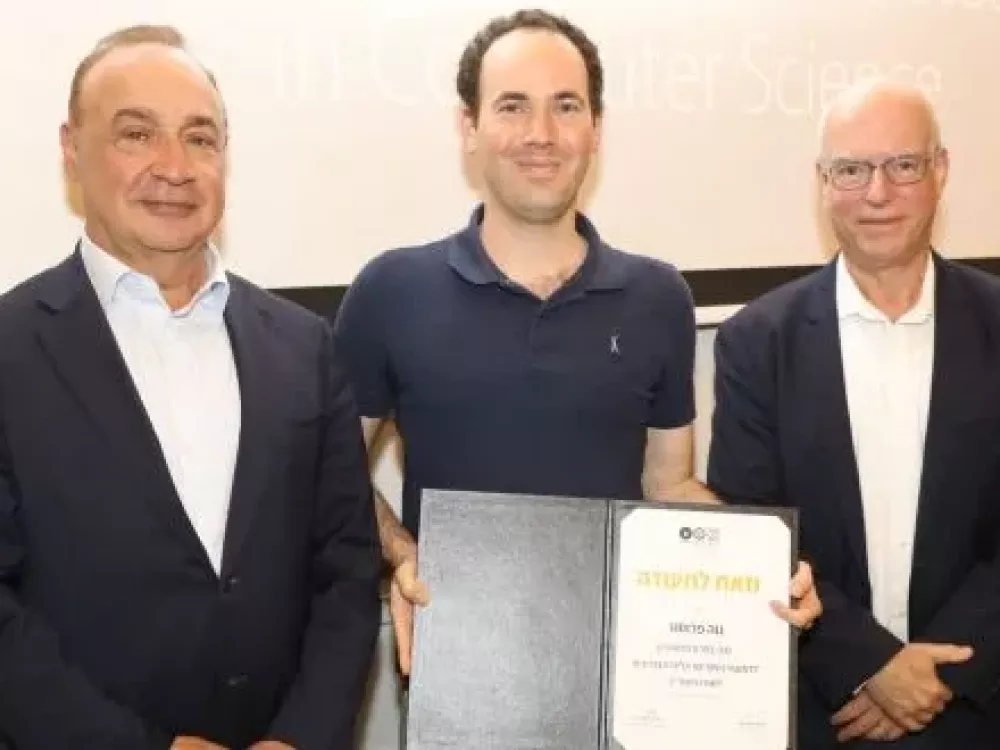
The Kadar Family Award granted to Professor Oded Rechavi from the School of Neurobiology, Biochemistry and Biophysics
The Kadar Award is granted annually to four TAU researchers, two senior and two junior faculty members, from across the spectrum of faculties and disciplines at TAU.
Oded Rechavi’s work uncovers novel mechanisms of inheritance – he has shown that in C.elegans nematodes environmental challenges can change the next generation without affecting the DNA sequence. The idea that stress could produce adaptive responses which transmit to the next generations was heretic for over 200 years, and no biological mechanism had been found to mediate non-DNA-based inheritance. Prof. Rechavi demonstrated that instead of inheritance being carried by changes to the DNA, other molecules (small RNAs) could mediate a type of transgenerational inheritance, which obeys different rules. He has shown that this mechanism can regulate genes across generations, and that this provides nematodes with a method to “memorize” natural experiences such as starvation and viral infections. Rechavi’s group has gone on to elucidate the rules that determine which epigenetic responses will be inherited, and for how many generations each response could last. He has identified the genes involved in regulating this pathway, including the enzymes which perpetuate inheritance of small RNAs (such as RNA-dependent RNA polymerases), and the factors that “erase” these responses (such as the MET-2 histone methyltransferase). These studies can help us to understand how complex traits and diseases are inherited – a first step towards treatments for many diseases where causative genes have not been identified. Taken together, this body of work represents a paradigm shift that will ripple through the fields of evolutionary biology, genetics, developmental biology, and social science.
Related posts

Prof. Isaac P. Witz Honored with 2023 Szent-Györgyi Prize for Progress in Cancer Research



Prof. Karen Avraham Wins Prestigious FISEB STAR Award for Scientific Excellence and Leadership

“Requiem for a Whale” Won Best Student Film Award at the IDA Documentary Awards Ceremony

The “Nobel of Mathematics”: TAU Prof. Noga Alon Wins the Prestigious Shaw Prize in Mathematical Sciences

BOG 2022: Kadar Family Award for Outstanding Research Presented to Four TAU Scholars


